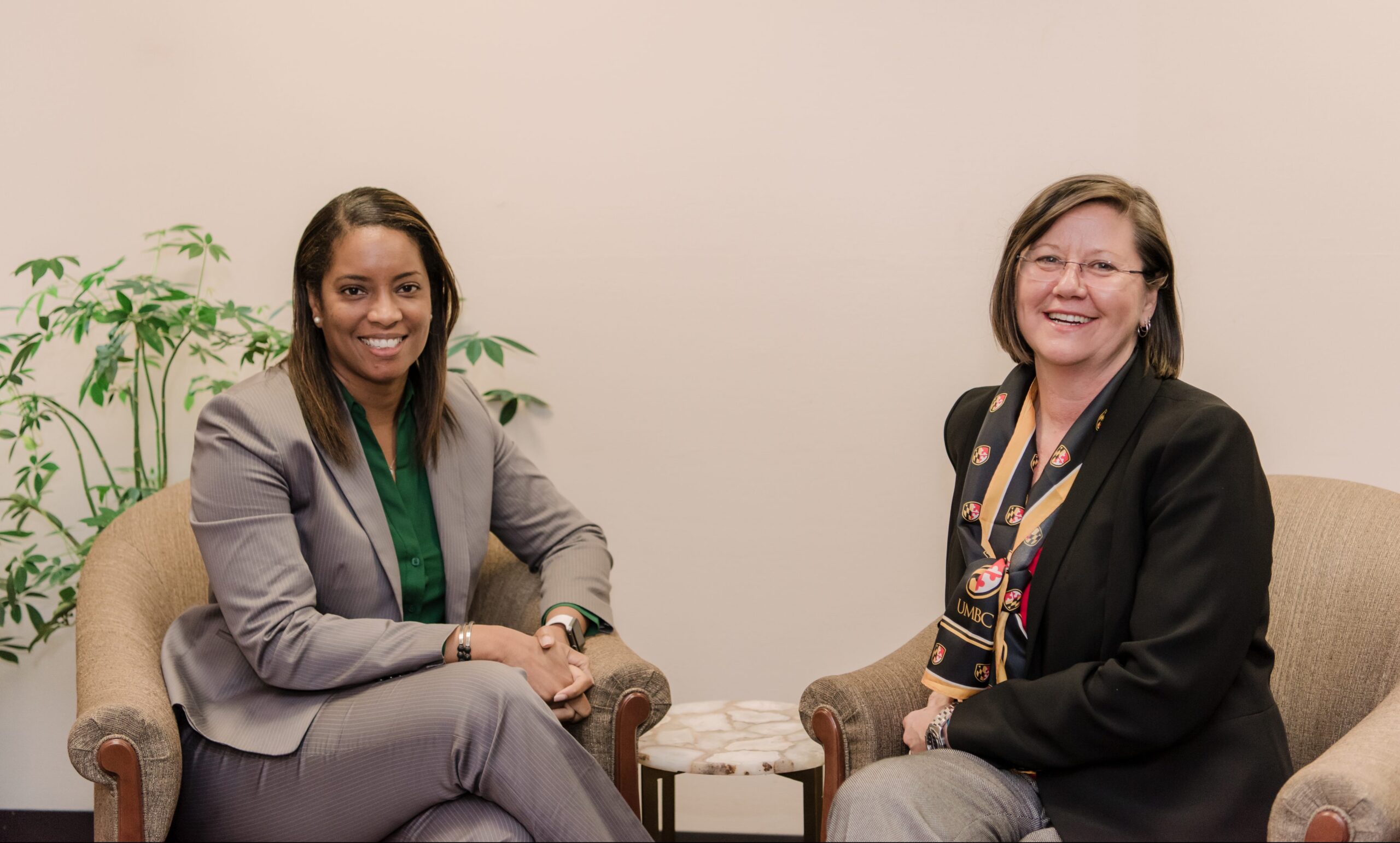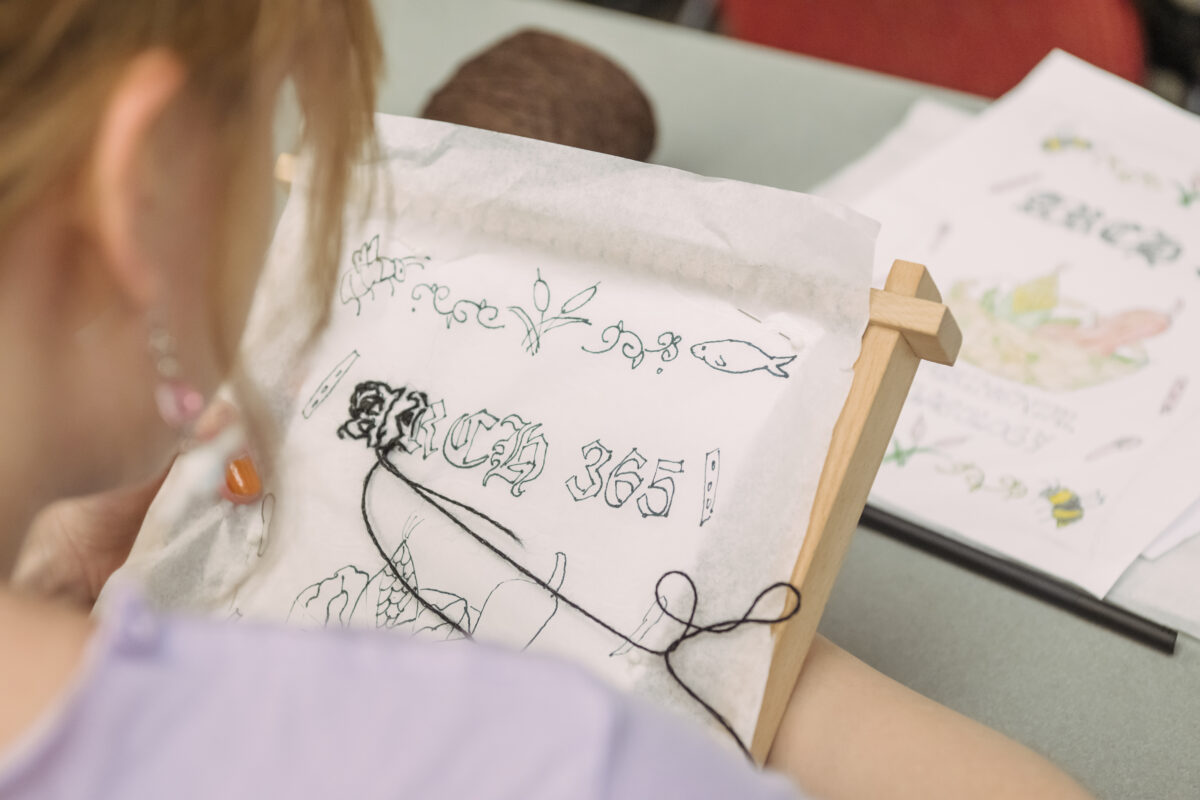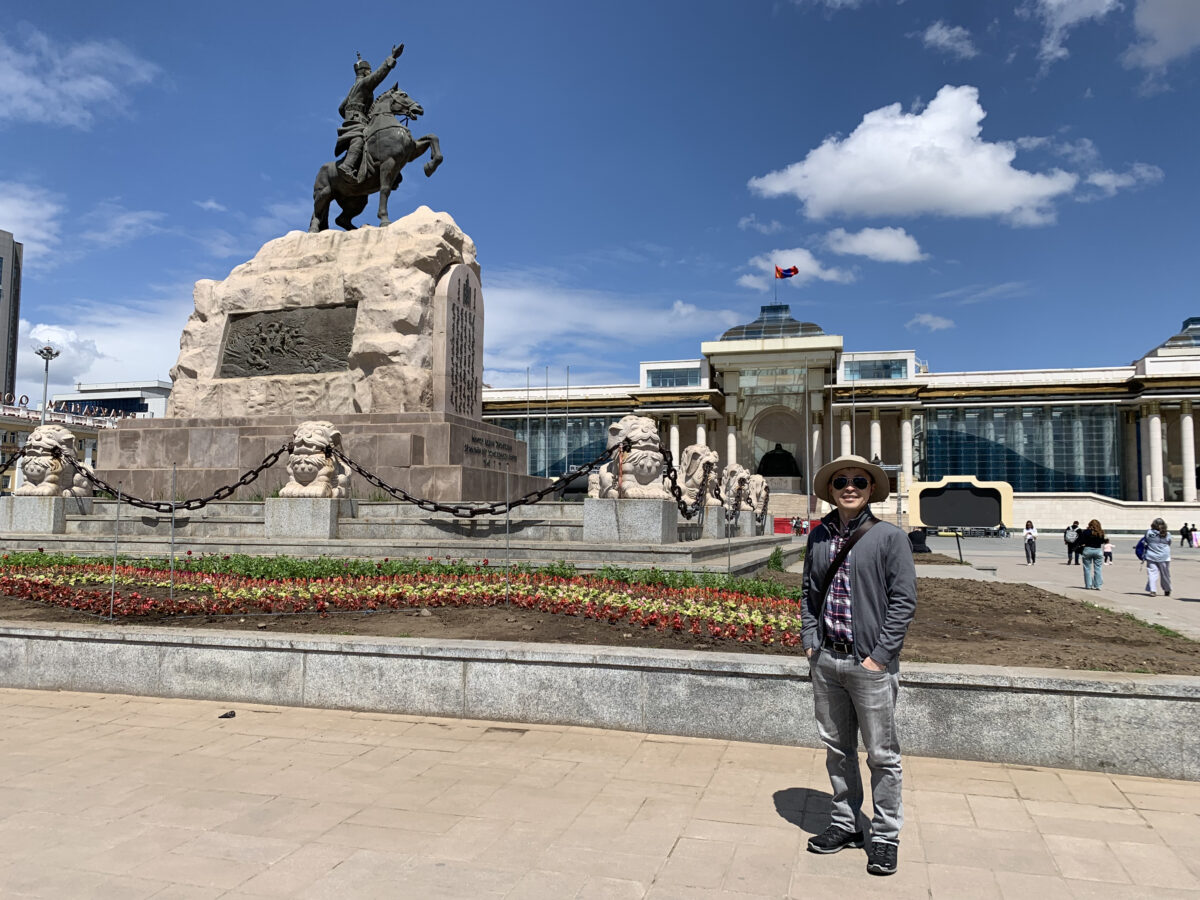One of the pillars of UMBC is a commitment to supporting emerging leaders from all backgrounds and across all disciplines. This includes supporting the growth of diverse university faculty and administrators on their path to top-level leadership positions, particularly through the American Council on Education (ACE) Fellows program.
The ACE Fellows Program has provided intensive professional development opportunities to 2,000 higher education leaders nationwide. UMBC has played a key role in this work, serving as a welcoming community and source of mentorship for leaders from other universities, and nominating UMBC leaders to pursue training opportunities at universities across the country.
The newest ACE Fellow to arrive on campus is a two-time UMBC alumna who is now shadowing UMBC leaders, including President Freeman Hrabowski, Provost Philip Rous, and Candace Dodson-Reed ‘96, English, chief of staff in the President’s Office, for the year.
A Retriever returns to explore something new
Kate Tracy M.A. ‘01, Ph.D. ‘03, psychology, was one of 39 people from across the country to be named ACE Fellows for the 2019-2020 academic year. Tracy is a professor of epidemiology and public health at the University of Maryland School of Medicine.
A core aspect of the ACE Fellowship program is that fellows spend time at a host campus learning from the host president, provost, and senior leadership team. Tracy knew early in the application process that she would love to return to her alma mater if she was selected as a fellow. When she learned she would spend the year at UMBC, she says, “I was ecstatic.”
She explains that she has been inspired to work alongside President Hrabowski by his powerful personal story, his tremendous track record of effective leadership, and his reputation as an innovator in higher education. “Dr. Hrabowski is an example of how your story informs your leadership,” she says. “This is an opportunity in my professional career where I will have mentorship from someone who is internationally known and respected for his leadership and transformative accomplishments at UMBC.”
Tracy’s research focuses on health disparities, specifically cervical cancer prevention in underserved groups of women. She has spent time in sub-Saharan Africa working with communities, public health officials, and health professionals to develop approaches to cervical cancer screening that would be locally sustainable.
Through her work, Tracy helped create a program that provided Gardasil vaccines to about 11,000 girls in Mali. The challenge, Tracy explained, is that the Gardasil vaccine is administered in three doses. This means medical staff administering vaccines must connect with each patient three times in order to make sure they receive the full vaccine series. She recognized the cross-cultural communication and logistical challenges involved, and saw careful preparation and close collaboration with the local community as critical to the vaccination program’s success.
With experiences like this on her mind, Tracy was excited to return to UMBC for her ACE Fellowship. “Something that’s often overlooked is that education and health are closely linked. Those with more education live healthier and longer lives. Under President Hrabowski’s leadership, UMBC is not only positively influencing equity in education, but in long-term health and well-being of its students,” she says.
“As a health disparities and equity researcher,” Tracy shares, “I am excited about being an ACE Fellow at UMBC because it opens opportunities to address health equity through leadership in the higher education space.”
Supporting UMBC faculty and administrators
Several UMBC faculty have been ACE Fellows in recent years, including one faculty member selected for the 2019-2020 ACE Fellows class. Tyson King-Meadows, associate professor of political science, Humanities and Social Sciences (CAHSS) is spending the year in the Provost’s Office at Case Western Reserve University. He is focusing on learning more about strategic planning, research infrastructure, faculty development, and external partnership development.
Additional recent ACE Fellows from UMBC include Sarah Shin, professor of education and associate provost for academic initiatives, and Anne Brodsky, professor and chair of psychology.
Two other recent UMBC ACE Fellows have advanced to senior leadership roles at other universities, taking with them UMBC values and experiences. Marie desJardins, former professor of computer science and associate dean for academic affairs in UMBC’s College of Engineering and Information Technology (COEIT), now serves as dean of the College of Organizational, Computational, and Information Sciences at Simmons College. Julie Ross, former dean of COEIT, is now the dean of the College of Engineering at Virginia Tech and the first woman to serve in this role.
“The ACE Fellowship Program provides invaluable opportunities for aspiring leaders to learn from some of the nation’s best leaders and their teams. It is one of the most comprehensive and successful leadership development programs available in higher education with 80% of fellows serving as chief academic officers, other cabinet level positions, deans, or presidents,” explains Tracy.
She shares, “I am deeply grateful to President Hrabowski, Provost Rous, the senior leadership team, and the UMBC students, staff, and faculty who have welcomed me to campus for the year, and are supporting my continued development as a proud UMBC alumna and a leader in higher education.”
Banner image: Candace Dodson-Reed (left), and Kate Tracy. Photo by Marlayna Demond ’11 for UMBC.
Tags: Alumni, CAHSS, Hrabowski, majoraward, PoliticalScience




